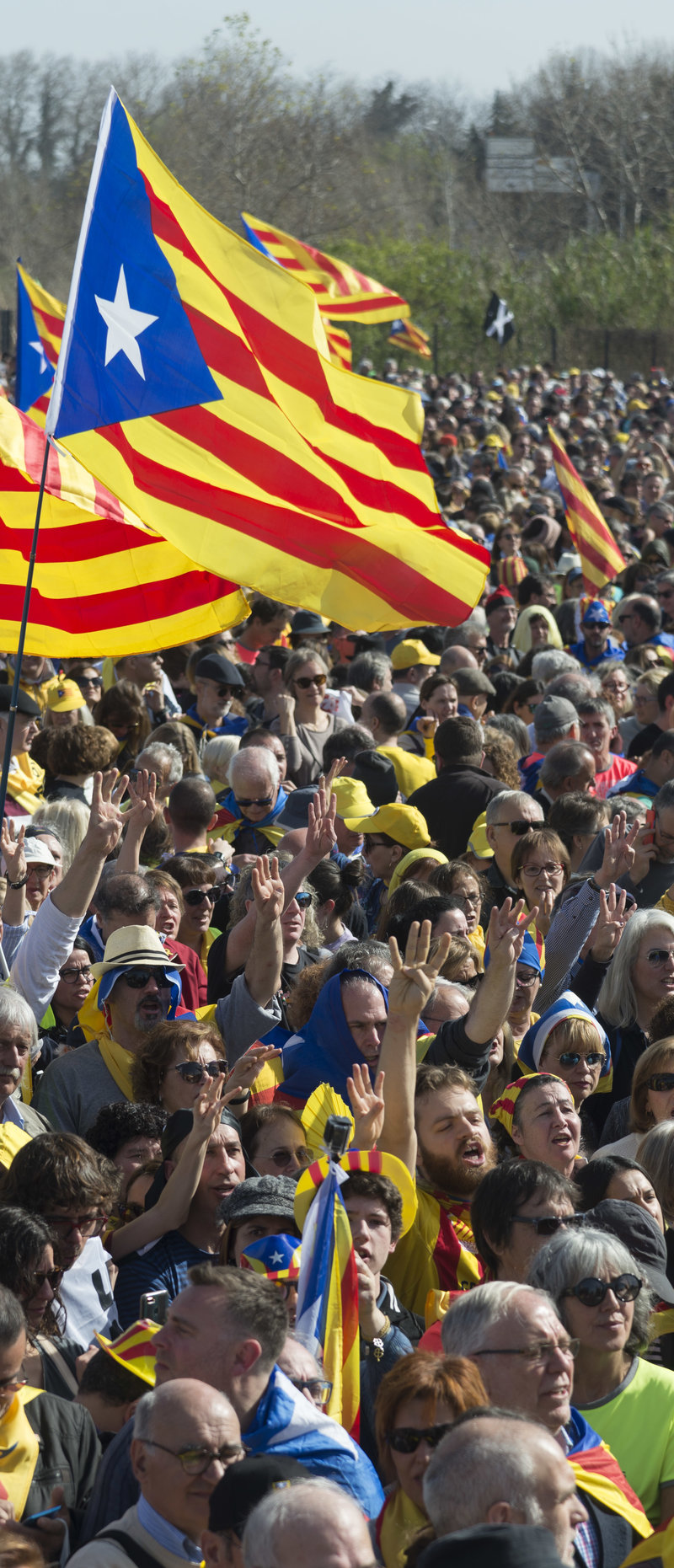Long-term resident
strangest things
Two uniquely unusual events that took place in Spain and Catalonia just a few weeks ago raised not a squeak out of the English language media. No surprises there. Event One took place on the last day of February. Two former ministers of the Catalan government, Clara Ponsatí and Toni Comín, plus the former president of the same, Carles Puigdemont - all of them cashiered by Madrid in 2017 - were able to return to Catalonia for the first time in over two years, thanks to the immunity recently conferred on them by the European parliament. But they were only able to make it as far as Perpignan (Perpinyà, in Catalan) the capital of that slither of Catalonia on the Gallic side of the Pyrenees which Philip IV of Castile and III of Aragon and Portugal ceded to France in 1659. If any of the three had crossed the border into the state whose name is stamped on their passports, they would have been arrested immediately. Their first joint political rally was introduced by the North Catalan writer Joan-Lluís Lluís, and watched by between one and two hundred thousand people - depending on whether you believe the organisers or the local Prefecture - who had flooded into Perpignan (population 120,000) from south of the border by train, bus, car and caravan. So here was the remarkable spectacle of a legally elected but defenestrated government (the other part is also in exile or in jail) being received with all the honours by the Mayor of Perpignan and then taking part in the biggest political rally ever held in that city, whereas over the border Spanish unionist parties (and not a few judges and policemen) were fuming at their inability to have prevented this snook cocked at them from within spitting distance of Spain. However, the Spanish police did make an effort to stop or slow incoming traffic at the border: my own journey, which normally would have taken just over an hour, took just over four. And the strictness of the French police, who made it impossible to leave until over three hours after the rally, also tried the patience of the passengers - but, astonishingly, not that much: even elderly demonstrators, and there were a lot of them, took these delays on the chin; most people, indeed, were in a celebratory mood when they finally got off the bus. Or maybe we just all needed a drink.
Event Two took place in Madrid three days later. Laura Borràs, a Catalan pro-independence MP in the Spanish parliament, had to get a taxi to the airport from the parliament building. But the street was occupied by a demonstration (over wage issues) of Spanish National Police and Civil Guards, wearing Anonymous masks, brandishing Spanish flags and (some of them) lit torches. As soon as they recognised Borràs they shouted that she was a ’Catalan whore’ or, alternatively, a ’daughter of a whore’ (nationality not specified). The parliament’s security detail said they didn’t have enough staff to help her, so she and her press chief had to run a five-metre gauntlet of threats before they could reach a taxi, which the same demonstrators then started hitting. Here was another remarkable spectacle: a large group of masked-up policemen, shouting xenophobic and sexist abuse at an elected MP and her assistant in the context of an organised protest.
The demonstration of tens of thousands of pro-independence Catalans in Perpignan was peaceful. The tiny one by members of the Spanish forces of law and order in Madrid was anything but. Both events were exceptional but then again, if you live in or come from Catalonia, the exception has been the norm for many years now, whether the English language media choose to report it or not.


